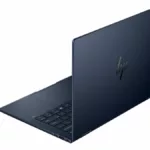The mobile industry is currently dominated by ARM’s RISC-based architecture. As veteran industry analyst Jon Peddie notes, the price/power/performance efficiency of the RISC-based heterogeneous SoCs and their multi I/O is satisfying a great many needs for hundreds of millions of people worldwide.
“So far, Intel has largely missed out on the revolution it helped ignite. The world’s biggest, and best semiconductor company is catching up however, and with the next generation of 22nm parts will offer the first real alternative to the ubiquitous ARM-based SoCs,” Peddie wrote in a recent industry note.

“And Intel’s SoCs will offer something else, that ARM currently can’t do—multi OS compatibility. The next gen (and to a certain extent this generation) of Atom processors will run Android and Windows, as well as Linux. That means if Intel can hit the same power/price/performance points as ARM-based SoCs, it has a bigger TAM than ARM does.”
According to Peddie, both Intel and rival AMD ignored the ARM revolution in their own imprudent way. For Intel, the (x86) Pentium and its successors all the way to Ivy Bridge have been such astoundingly good products with such sweet fat margins, there was little appetite within Intel to abandon that cash cow.
“It was those cows that provided the positive feedback mechanism to fund the fabulous fabs Intel has built. Now, finally, Intel is applying those super guns to the cheap and tiny and preparing to meet ARM on its home ground,” Peddie explained.
“[True], ARM may have started the revolution, and even won the first round, that’s the good news. The bad news is they’ve woken up the bear and its cousin in Austin and now ARM is going to have a new set of problems to deal with, and one I’m not sure they’re prepared to take on.”
Of course, ARM is unlikely to suffer much with Intel and AMD in its traditional market space, says Peddie.
“ARM is a company that was built on tiny processors with penny transactions; it’s a lean mean fighting machine and won’t roll over easily to mighty Intel or pugnacious AMD,” the analyst added.







